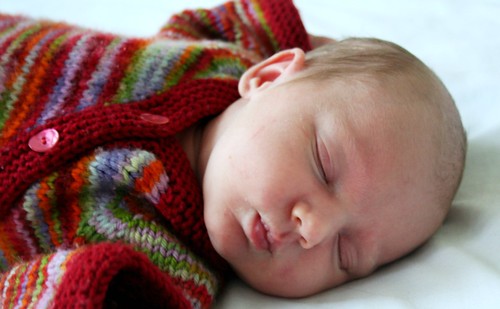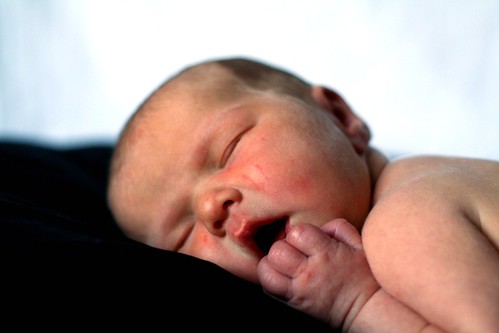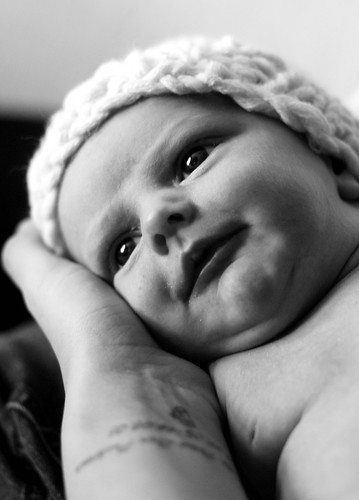I have often heard of others poor experiences of breastfeeding support in hospitals, and I cannot deny that my own experience wasn't that great either. However I have also witnessed first hand some wonderful support from both midwives and Maternity Care Assistants.
This is Clare's experience of breastfeeding support:
"Before I had my first baby, I had always assumed I would breastfeed him. I didn’t really give it much more thought, so when James was born 7 weeks early by Caesarean section, weighing 5lb 1oz, and taken away from me to the Special Care Baby Unit (SCBU) it was a real shock that I wasn’t able to breastfeed him. At first, he was fed through a tube in SCBU, but they switched to bottle-feeding without discussing it with me first. I didn’t really question this, as I just assumed that the hospital knows best. I was given a pump to express milk with, not shown how to use it and left to get on with it.
In SCBU James’s weight was monitored constantly, and when I started to try breastfeeding, rather than just expressing milk for him, on about day 5 or 6, he lost weight on that day. This meant that we couldn’t take him home and the nurses insisted on feeding him from the bottle themselves to make sure he took in enough food. This was incredibly upsetting and in the end I gave up attempting to breastfeed in the hospital. I decided to carry on expressing and wait to try when I got home.
I had no one to turn to for advice on how to start breastfeeding from this point and was panic stricken that if James hadn’t gained enough weight by the time the midwife came to visit at home he would be taken back into hospital. Every time I tried to feed, he wouldn’t latch on, so I would switch to giving him a bottle for the rest of the feed. My milk never really came in and after 6 weeks of trying, expressing milk and feeling totally shattered I gave up on breastfeeding completely.
I felt that I had failed James and it still upsets me to think about how little support I was given in the hospital to establish breast (rather than bottle) feeding before bringing him home. I am convinced it is because he was healthy in all other respects and they needed the space in SCBU for another less fortunate baby.
Fast forward to August 2008 and the birth of my second child, a baby girl called Claudia, also born by Caesarean section for breech, this time it was a (sort of) planned section and was at 39 weeks, so a lot calmer all round.
As you can imagine I was pretty determined to succeed at breastfeeding this time, having failed spectacularly with James. I had read up a lot on what to expect, including stories from mums who hadn’t managed to breastfeed first time round but did it second time around.
Claud latched on with relative ease very shortly after she was born. The midwife showed me how to latch her on and then I was left to get on with it. She was sleepy-ish for the first couple of days but she seemed to be doing well and I was happy. Cue day 3 and the visit from the paediatrician who wanted to top her up with formula on day 3. She had very slightly low blood sugar and my milk hadn't yet come in. Not unknown in women who have had C-sections!! Luckily I knew this and argued my corner. The midwives were hugely supportive when I explained what had happened with James and we all agreed that I would put her to the breast more, so that she was getting more in that way and they would monitor her blood sugar. Luckily for us her blood sugar went up and everyone was happy. Hurray, we could go home!
So what happened next? Well, my milk came in and any pain I had eased off. She fed and fed and fed and fed some more. I remember getting very fed up at how often she was feeding. And her sleep was rubbish. But we carried on. We learned how to co-sleep, which helped a lot and the feeds settled down a bit. They really eased off at around 9 months, when she really “got” solid food, and started at nursery. This was a good job, because I was really really sick of breastfeeding at that point! Eventually I wasn’t feeding her during the day at all, just morning, evening and all through the night! Although I had originally intended to give up breastfeeding at around 5 months in preparation for going back to work, that didn’t quite happen as she refused point blank to take a bottle. I had to delay my return for 3 months, which thankfully I could, and then she simply didn’t have milk while she was there. That was hard, but we did it!
I do feel very proud to have succeeded at breastfeeding second time around, and I would urge anyone who didn’t manage it first time to give it a second go if you feel you can. I had woeful support after having James, and very little (in terms of help on technique etc) after having Claud. Luckily for me, Claud was a natural and we never really looked back."




